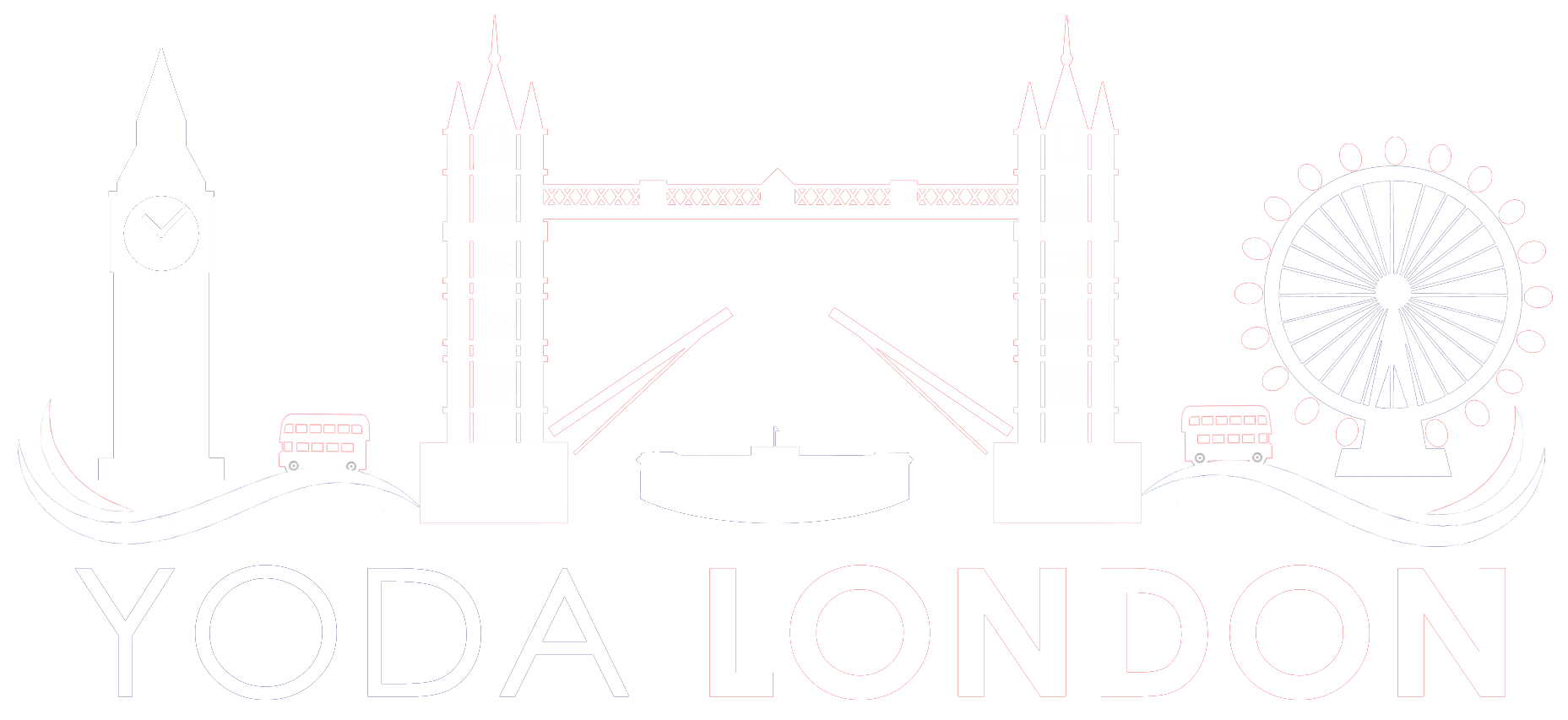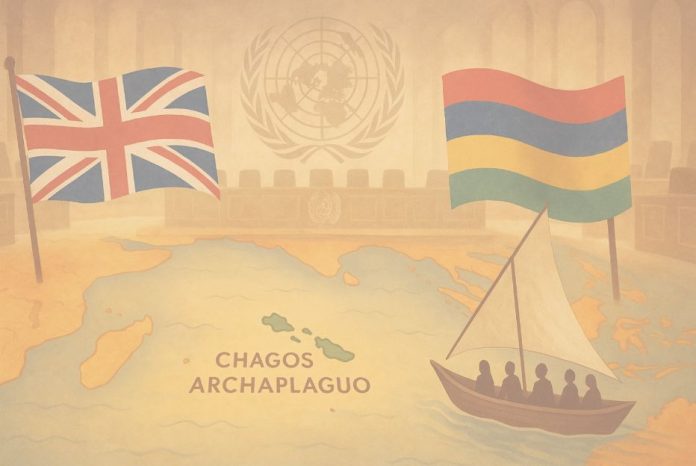Table of Contents
The question of why the UK is giving up the Chagos Islands in 2025 is rooted in a complex web of colonial history, international law, and evolving global diplomacy.
Long-standing tensions between the United Kingdom and the Republic of Mauritius over sovereignty rights have come to a head, prompting a landmark decision that signals a shift in the UK’s approach to its remaining overseas territories.
The Chagos Archipelago, strategically located in the Indian Ocean, has been at the centre of legal battles and human rights controversies for decades.
The forced displacement of its indigenous population, the Chagossians, to facilitate the establishment of a US military base on Diego Garcia, has drawn criticism from both domestic and international quarters.
Now, with increasing global support for decolonisation and recent rulings from the International Court of Justice (ICJ), the UK has agreed to return the islands to Mauritius by 2025.
What Is the Historical Context of the Chagos Islands Dispute?
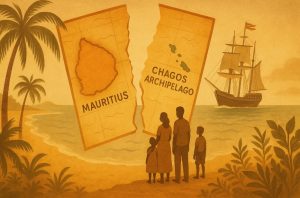
The Chagos Islands, also known as the Chagos Archipelago, are located in the central Indian Ocean.
In 1965, during the decolonisation of Mauritius, the United Kingdom detached the islands and established the British Indian Ocean Territory (BIOT), citing strategic defence reasons. This move has been contested by Mauritius ever since.
Historically, the UK forcibly removed over 1,500 Chagossians between 1967 and 1973 to make way for a joint UK-US military base on Diego Garcia, the largest island in the archipelago.
The displaced inhabitants were sent to Mauritius, Seychelles, and the UK, with little compensation or support, triggering decades of legal and political battles.
Why Did the International Court of Justice Rule Against the UK?
In 2019, the International Court of Justice (ICJ) issued an advisory opinion that the UK’s continued administration of the Chagos Islands was unlawful.
The ICJ stated that the decolonisation of Mauritius was incomplete and that the UK must end its control over the archipelago.
The court emphasised that separating the Chagos Islands without the consent of the Mauritian people violated international law. Although the ICJ’s ruling was non-binding, it carried significant moral and diplomatic weight.
How Did the UN Respond to the Chagos Islands Situation?
Following the ICJ ruling, the United Nations General Assembly adopted a resolution by an overwhelming majority, urging the UK to return the Chagos Islands to Mauritius within six months.
The UN reaffirmed the right of self-determination and called the UK’s claim over the territory a form of colonialism. Most member states, including former colonial powers, sided with Mauritius, increasing international pressure on the UK.
What Led to the UK’s Decision to Return the Chagos Islands in 2025?
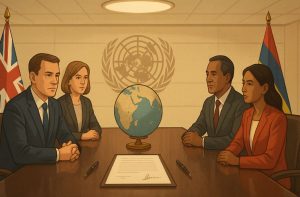
Diplomatic Shifts
The UK faced mounting international condemnation and diplomatic isolation over the issue. As it repositioned itself on the global stage post-Brexit, the UK sought to align more closely with international norms and restore its soft power image.
Legal and Moral Obligations
The cumulative weight of legal opinions, resolutions, and campaigns from human rights organisations made it increasingly difficult for the UK to justify its position.
Bilateral Negotiations
In 2022, the UK and Mauritius opened formal negotiations. After three years of talks, both nations agreed in principle to a transfer of sovereignty by 2025, while retaining arrangements for the Diego Garcia military base.
What Role Does Diego Garcia Play in the Decision?
Diego Garcia remains a central issue in the debate. The island hosts a major US military base that has been critical for operations in the Middle East and the Indo-Pacific region.
Strategic Considerations
The base’s geopolitical importance made it unlikely that either the US or UK would support a handover that compromised its operations. Hence, any agreement had to involve guarantees for continued military access.
Mauritian Assurances
Mauritius has agreed to lease the base to the US for a continued period post-2025. This compromise was crucial to securing support from Western powers and ensuring regional security continuity.
How Are Chagossians Affected by This Change?
The decision to return the Chagos Islands opens a path for justice for the Chagossian people.
Right of Return
Mauritius has pledged to allow Chagossians to return to their homeland. This includes infrastructure development and environmental protection to support sustainable resettlement.
Compensation and Recognition
The UK has faced criticism for inadequate compensation in the past. With the handover, discussions have resumed around reparations and official recognition of Chagossians’ suffering.
Cultural Identity
For many, returning to Chagos is not only about land but also about reclaiming identity, heritage, and dignity that was lost during their forced removal.
What Are the Geopolitical Implications of This Transfer?
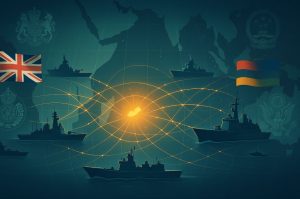
This handover has far-reaching geopolitical effects in the Indian Ocean region.
Changing Balance of Power
With Mauritius gaining sovereignty over the archipelago, India, China, and other regional powers may seek deeper ties in the Indian Ocean. It could shift naval logistics and economic initiatives such as maritime trade routes.
Decolonisation Momentum
The move is seen as a landmark in global decolonisation. It may influence other territorial disputes and increase calls for the UK to reassess its relationship with remaining overseas territories.
What Happens After 2025?
The post-2025 landscape will focus on shared governance, continued strategic use of Diego Garcia, and environmental restoration.
Timelines and Transition
A phased handover is expected, with UK personnel withdrawing and Mauritian administrators taking charge gradually.
Environmental Planning
The fragile ecosystem of the Chagos Archipelago will be central to policy. Mauritius has expressed intent to balance military needs with environmental protection, possibly developing marine conservation zones.
Timeline of Key Events in the Chagos Islands Dispute
| Year | Event |
| 1965 | UK separates Chagos from Mauritius |
| 1966 | UK leases Diego Garcia to the US |
| 1967–1973 | Chagossians forcibly removed |
| 1982 | First legal compensation efforts begin |
| 2010 | UK declares Marine Protected Area |
| 2019 | ICJ rules UK must return Chagos to Mauritius |
| 2022 | UK-Mauritius negotiations begin |
| 2025 | Agreed handover of sovereignty to Mauritius |
How Has Public Opinion in the UK Shifted Regarding the Chagos Islands?
Over the years, public opinion in the United Kingdom has shifted considerably on the matter of the Chagos Islands, particularly following increased media coverage, court rulings, and political advocacy.
Initially, awareness of the forced displacement of Chagossians and the UK’s role in the separation of the islands from Mauritius was minimal among the British public.
Increased Awareness and Advocacy
In recent years, the efforts of campaign groups such as the Chagos Refugees Group and support from human rights organisations have helped raise awareness.
Documentaries, parliamentary debates, and legal campaigns brought to light the scale of the injustice, leading to a more informed and sympathetic public view.
High-profile legal challenges and media reports drew significant attention to the plight of the Chagossian community, including their long-standing efforts to return to their homeland.
Public sentiment has largely shifted to support the idea of justice, reparations, and the right of return for displaced Chagossians.
Political Influence
MPs across different parties began raising questions in Parliament, pushing for a reassessment of UK policy on the territory. Polls and petitions indicated growing support for the UK to comply with international rulings and restore sovereignty to Mauritius. The shift in public and political discourse contributed to the momentum behind the UK’s 2025 decision.
What Legal Precedents Could the Chagos Islands Case Set Internationally?
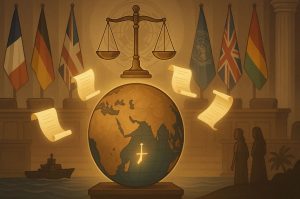
The legal and diplomatic developments surrounding the Chagos Islands have the potential to set significant precedents for other unresolved territorial and decolonisation issues around the world.
Strengthening the Role of International Courts
The ICJ’s advisory opinion in 2019 is a landmark example of how international legal institutions can influence state behaviour, even without binding enforcement powers.
It showed that global consensus and legal opinion could exert enough moral pressure to prompt change, especially when backed by the UN General Assembly.
Other territories under dispute such as the Falkland Islands, Gibraltar, or Western Sahara may reference the Chagos case in future claims.
The emphasis on the illegality of colonial era separations and the primacy of self-determination strengthens the position of countries challenging historical territorial arrangements.
Accountability and Reparations
The Chagos case reinforces the idea that colonial powers can be held accountable for past actions, including forced displacement.
It opens the door for more robust conversations around reparations, resettlement rights, and the moral obligations of former colonial states.
The resolution of this case may encourage international organisations to more proactively address historical injustices and support decolonisation movements that are still ongoing in the 21st century.
Conclusion
The UK’s decision to return the Chagos Islands to Mauritius marks a significant shift in how colonial legacies are addressed. It demonstrates a growing willingness to align with international law and moral obligations, even when strategic interests are involved.
For Chagossians, it symbolises a long-overdue recognition of their rights, culture, and history. As global powers reassess their roles in former colonies, the Chagos decision may set a precedent for future territorial reconciliations.
FAQs About Why Is the UK Giving Up the Chagos Islands in 2025?
Why did the UK separate the Chagos Islands from Mauritius in the first place?
The separation was made in 1965 for strategic military purposes, allowing the UK to lease Diego Garcia to the United States for defence operations.
Can Chagossians return to the islands now?
Yes, with the planned handover in 2025, Mauritius has committed to enabling the resettlement of Chagossians with proper support.
Will the US continue using Diego Garcia after 2025?
Yes, under the agreement, the US will retain access to the base through a lease from Mauritius.
What does this mean for UK overseas territories?
This move raises questions about the future governance of other UK overseas territories, particularly those with historical disputes.
Has the UK apologised for the displacement of Chagossians?
While there have been acknowledgements and compensation efforts, many consider them insufficient. Further steps are expected post-handover.
What is the environmental significance of the Chagos Islands?
The archipelago is one of the world’s most biodiverse marine ecosystems, which Mauritius plans to protect under future environmental frameworks.
Is this handover legally binding?
While not the result of a court-enforced ruling, the agreement between the UK and Mauritius carries diplomatic and legal weight under international law.
